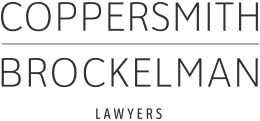Karen Owens Outlines Key Arizona Peer Review Updates for AzSHA

For the first time since 2005, the Arizona Court of Appeals addressed substantive peer review issues in 2021. To help its members understand them better, the Arizona Society of Healthcare Attorneys (AzSHA) turned to Karen Owens to unpack the impact on the peer review process.
Karen’s blog summarized key takeaways from Sharifi Takieh v. O’Meara (“Takieh”) and Sharifi v. Banner Health (“Sharifi”):
- Takieh affirmed the prohibition on discovery of peer review documents and made clear that hospitals cannot be required to prepare privilege logs in connection with claims of peer review confidentiality.
- Sharifi affirmed the prohibition on discovery of peer review documents and made clear that hospitals cannot be required to prepare privilege logs in connection with claims of peer review confidentiality.
- Although Sharifi is an unpublished memorandum and memorandum decisions are not precedential, they can be cited in certain circumstances, including:
- Establishing claim preclusion, issue preclusion, or law of the case
- Assisting the appellate court in deciding whether to issue a published opinion
- Granting a motion for consideration or petition for review
- Providing persuasive value
- While no one can prevent disgruntled physicians from naming individuals in lawsuits arising from peer review, Arizona law provides strong protection of the integrity of the peer review process.
Karen’s blog also traced the physician’s complaint in federal court, first with the District Court and then with the Ninth Circuit Court of Appeals, outlining why the case was dismissed.
Karen, who serves on the AzSHA Board of Directors, represents health care systems, hospitals, clinics, and other providers in a variety of matters including quality management, medical staff credentialing and peer review, medical staff structures, bylaws, and confidentiality, as well as National Practitioner Data Bank, state professional board, and other government reporting.
